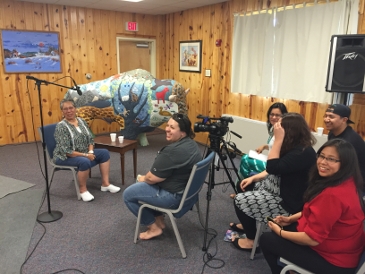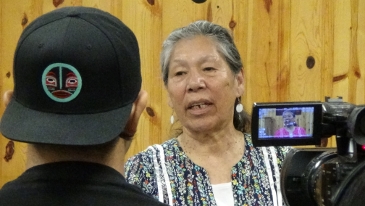During the first Symposium, 7 indigenous youth, aged 18 to 25, were selected for an oral history project. They were chosen by the Symposium Committee on the basis of the following criteria: they must come from the same region as one of the selected elder delegates, demonstrate an interest in the collection of oral memory, master the new means of communication, and be willing to continue the work of collecting oral memory in their region and produce audio-visual materials for 3 years, using and producing these materials to empower the younger generation. Those selected were: Ms. Haydee Banasen of the Cordilleras in the Philippines; Ms. Morgan Catlett, Cherokee of South Dakota; Ms. Sharni Hooper of the Murrawarri Republic in Australia; Ms. Judy Kipkenda-Jemutai, Ogiek of Kenya; Ms. Jacquelynn Lambert, Inuit of Alaska; Ms. Wayanay Mamani, Aymara of Bolivia; and Mr. Alancay Morales, Brunca of Costa Rica.
The main challenge therefore is to safeguard and transmit an oral tradition that is disappearing, a tradition incorporating extensive knowledge that has proven effective over three decades and which the younger generations need in order to ensure that their rights are actually observed in their respective countries. By gathering at the Symposium, the younger and older generations have been brought together in a way that instructs the youth and empowers in a sustainable manner.
In addition, the issue of sustainability - particularly relevant for a project on memory - is ensured by video training and follow-up on the part of the 7 indigenous youth, who have the skills and equipment to continue to produce videos for their communities, and to collect and disseminate the memory of their elders.










